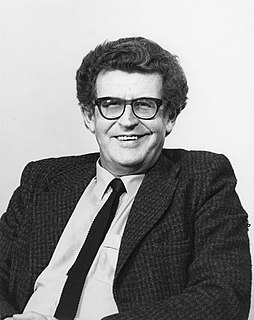A Quote by James Grant
Central banks have gotten out of the central banking business and into the central planning business, meaning that they are devoted to raising up-if they can-economic growth and employment through the dubious means of suppressing interest rates and printing money. The nice thing about gold is that you can't print it.
Quote Topics
About
Banking
Banks
Business
Central
Central Bank
Central Banking
Central Banks
Central Planning
Devoted
Dubious
Economic
Economic Growth
Employment
Gold
Gotten
Growth
Interest
Interest Rate
Interest Rates
Meaning
Means
Money
Nice
Nice Thing
Out
Planning
Print
Printing
Printing Money
Raising
Rates
Suppressing
Thing
Through
Up
Related Quotes
When you own gold you're fighting every central bank in the world. That's because gold is a currency that competes with government currencies and has a powerful influence on interest rates and the price of government bonds. And that's why central banks long have tried to suppress the price of gold. Gold is the ticket out of the central banking system, the escape from coercive central bank and government power.
Central banks are choosing to increase their gold holdings as a percentage of total reserves. They obviously think there is a reason to do that. It doesn't make sense to back up one currency with a hoard of other paper currencies. There needs to be a real anchor there. I think that central banks are well behind the curve. If you look at the percentage of above-ground gold controlled by central banks, it's historically low. Hence the fact that central banks are trying to increase their holdings. They've got a long way to go to get where they need to be.
It is a sobering fact that the prominence of central banks in this century has coincided with a general tendency towards more inflation, not less. [I]f the overriding objective is price stability, we did better with the nineteenth-century gold standard and passive central banks, with currency boards, or even with 'free banking.' The truly unique power of a central bank, after all, is the power to create money, and ultimately the power to create is the power to destroy.
Repeal the entire Banking Act of 1933, and Austrian School economists will cheer, especially if the current system were replaced by a 100%-reserve competitive banking with no central bank. That banking reform would give us a sound money system, meaning no more business cycle, bailouts, or inflation.
We need a candidate who's going to be a fighter for freedom. Who is going to get up and make that the central theme in this race because it is the central theme in this race. I don't care what the unemployment rate's going to be. Doesn't matter to me. My campaign doesn't hinge on unemployment rates and growth rates.
In 1977, when I started my first job at the Federal Reserve Board as a staff economist in the Division of International Finance, it was an article of faith in central banking that secrecy about monetary policy decisions was the best policy: Central banks, as a rule, did not discuss these decisions, let alone their future policy intentions.
The lesson for Asia is; if you have a central bank, have a floating exchange rate; if you want to have a fixed exchange rate, abolish your central bank and adopt a currency board instead. Either extreme; a fixed exchange rate through a currency board, but no central bank, or a central bank plus truly floating exchange rates; either of those is a tenable arrangement. But a pegged exchange rate with a central bank is a recipe for trouble.
Global central banks are working hard to lift their economies through an aggressively easy monetary policy. The ECB [European Central Bank] and BOJ [Bank of Japan] are buying tens of billions of bonds and other financial securities each month in an effort to stimulate their economies, which is pushing down rates everywhere, including in the U.S.
Having examined the nature of fractional reserve and of central banking, and having seen how the questionable blessings of Central Banking were fastened upon America, it is time to see precisely how the Fed, as presently constituted, carries out its systemic inflation and its control of the American monetary system.
If the central contest of the twentieth century has pitted capitalism against socialism, then F. A. Hayek has been its central figure. He helped us to understand why capitalism won by a knockout. It was Hayek who elaborated the basic argument demonstrating that central planning was nothing else but an impoverishing fantasy.





































